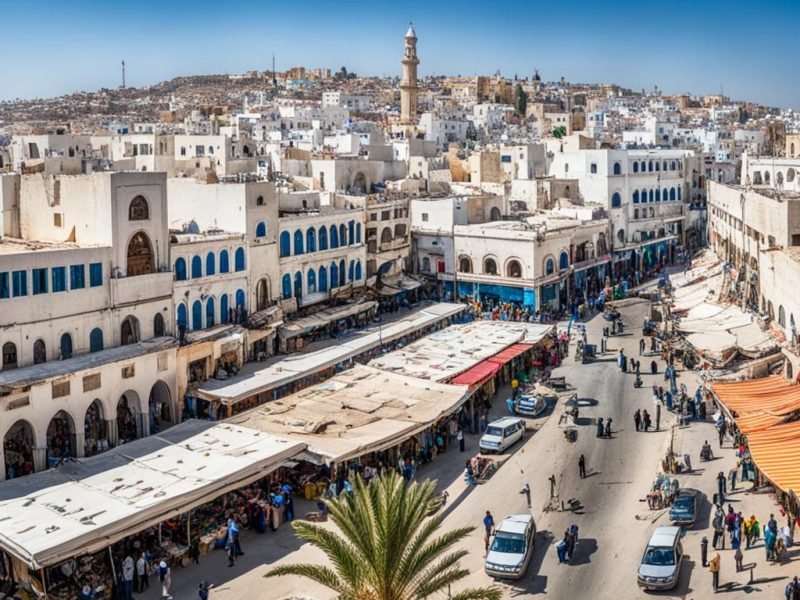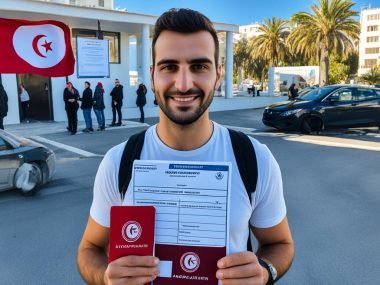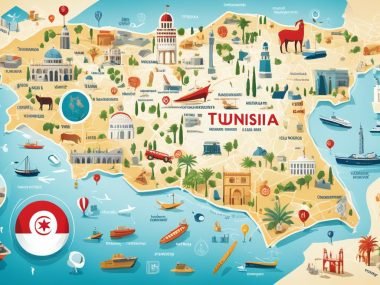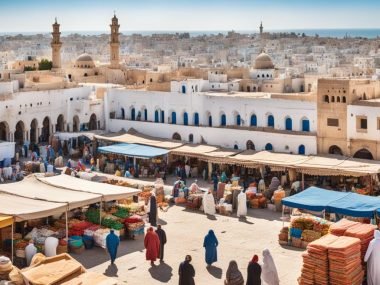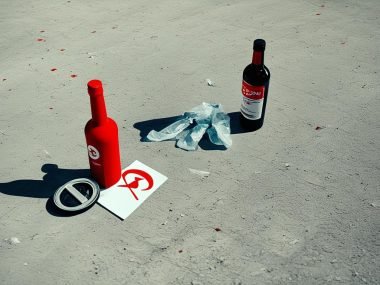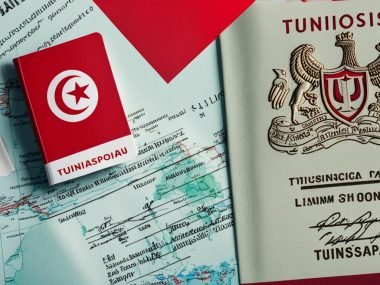The World Bank Group has laid out a plan for Tunisia from 2023 to 2027. It matches Tunisia’s own goals and the “Note d’Orientation Tunisie 2035.” The plan aims to boost jobs, help small businesses, and lessen regional wealth gaps. It wants to improve education, family well-being, climate strength, and lower carbon use. It also aims to improve gender equality and make sure people can hold others accountable.
The World Bank is helping Tunisia with advice and practical help in key areas. These include clean energy, building strong communities, economic growth, and supporting small businesses. It plans to lend $400-$500 million every year for five years. This also includes extra help from the IFC and guarantees by MIGA. The aim is to support renewable energy, make finances more inclusive, and manage water resources better.
Key Takeaways
- The Country Partnership Framework (CPF) charts Tunisia’s development level for FY2023-2027, aligning with national plans.
- CPF targets significant outcomes: job creation, SME support, and regional disparity mitigation.
- Focus areas include enhancing human capital, climate resilience, and carbon emission reduction.
- Gender equality and social accountability are integral themes.
- Annual allocation of $400-$500 million, with additional IFC and MIGA support, bolsters renewable energy and financial inclusivity.
Economic Progress and Diversification
After the Ben Ali dictatorship ended, Tunisia embraced democracy. Yet, economic troubles remain. The World Bank is leading projects to boost Tunisian economic progress and widen its economy.
GDP Growth in Tunisia
Tunisia’s economy is slowly getting better despite issues. These include less money from tourists and tough times caused by the pandemic. People are still unsure about where the country is headed. It highlights how vital a plan for economic recovery is.
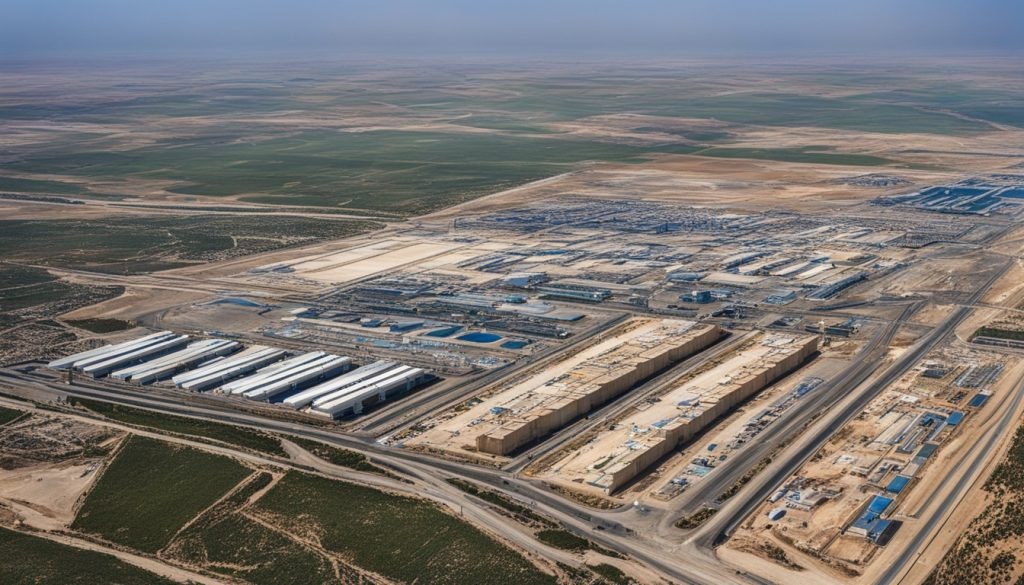
Support to Small and Medium Enterprises (SMEs)
Small and medium businesses play a key role in Tunisia’s economy. Realising this, the World Bank is investing $120 million to help these companies. This money is meant to make it easier for them to get funds, which will help Tunisia’s economy recover. It’s also expected to create jobs and lead to steady growth.
Economic Diversification Initiatives
The focus is also on diversifying the economy. Tunisia is working with groups like the World Bank to make its economy more stable. This involves looking for new ways to make money and backing small and medium enterprises a lot. Such steps are important for a strong economy and to help Tunisia grow in different ways.
Tunisia’s Infrastructure Development
Tunisia is making great strides in its infrastructure, focusing on eco-friendly energy, better sanitation, and improved connectivity. Many projects are underway, making a big difference in these fields.
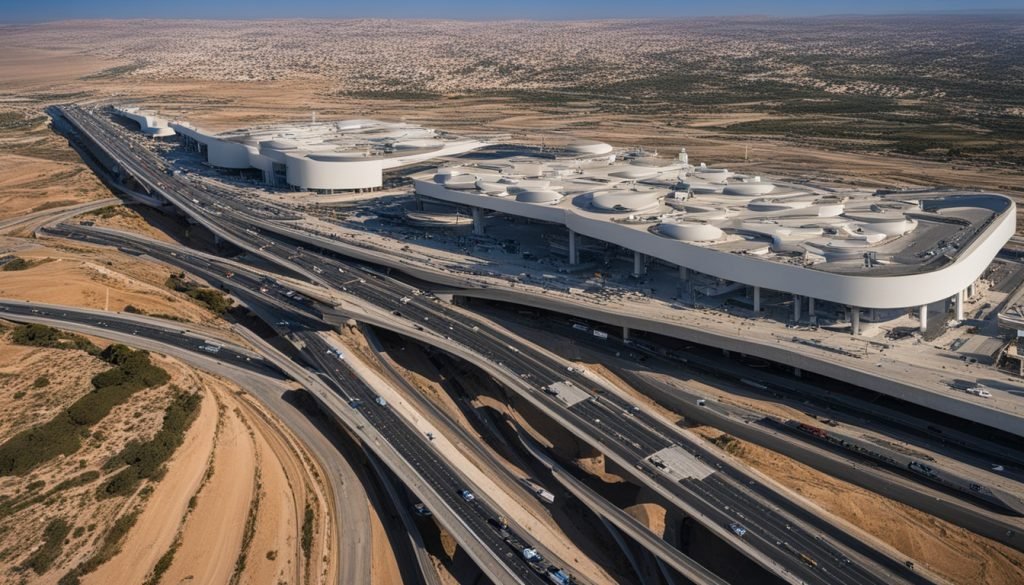
Renewable Energy Projects
The ELMED project stands out, with a big push from the World Bank investing $268.4 million. It aims to connect Tunisia’s power network with Europe using an undersea cable. This will boost renewable energy trade and make Tunisia a key player in green energy. It fits perfectly with Tunisia’s goals for sustainable growth and tackling climate change.
Sanitation and Water Management
For a long time, Tunisia didn’t focus much on sanitation. Now, it’s getting the attention it needs. A massive project, funded with $130 million, aims to better manage wastewater. It will also build up ONAS’s ability to handle contracts and deliver services. About two million people will benefit, highlighting Tunisia’s commitment to managing water effectively.
Transport and Connectivity Improvements
The transport sector in Tunisia is on the up. Money is going into making the transport system better, linking different parts of the country more effectively. This is key for trade and getting around, and it’s a crucial part of Tunisia’s development plan.
| Project | Description | Investment |
|---|---|---|
| ELMED Project | Connecting Tunisia’s grid with Europe for renewable energy trade | $268.4 million |
| Tunisia Sanitation PPP Support | Improving wastewater management and ONAS’s capabilities | $130 million |
Tunisian Social Indicators and Human Development
Exploring the complex social aspects of Tunisia shows its progress on the Human Development Index (HDI). We’ll look at how Tunisia’s social indicators, educational reforms, and healthcare services are making a difference.
Human Development Index
In 2022, Tunisia was ranked high on the Human Development Index. This shows big steps forward in its development. Education and healthcare investments have played a big role in this improvement. The HDI looks at life expectancy, education, and income, showing how the country is growing socially despite challenges.
Education System Reforms
Tunisia is improving its education system to make it better and more relevant. These changes are from the ground up, aiming to build a strong and skilled workforce. They are updating school buildings and making lessons fit today’s world.
Healthcare and Social Services
Making healthcare and social services better is key for Tunisia, helping it handle hard times. They’re making sure more people can get healthcare and making it stronger. This includes training for doctors, bigger hospitals, and more public health efforts. Tunisia wants these changes to improve its Human Development ranking further.
| Indicators | Recent Developments |
|---|---|
| Human Development Index Tunisia | High classification as of 2022 |
| Education System Tunisia | Reforms targeting quality and relevance |
| Healthcare Services Tunisia | Enhanced accessibility and resilience |
How Developed Is Tunisia?
After the 2011 uprising, Tunisia started making political changes for a better, more democratic society. Rewriting the constitution was key. It aimed at political stability and setting up a democratic government. Still, there are hurdles that could stop the progress made.
Political Stability and Reforms
Tunisia has seen major reforms since the Arab Spring. The 2014 constitution supports democracy and government oversight. Yet, after the revolution, political split and economic issues pose risks. Leaders, like President Kais Saied, focus on reforms to maintain law and democratic growth. They know stability is linked to good governance.
Public Trust and Corruption
Trust is low in Tunisia, affected by deep-rooted corruption in many areas. Anti-corruption movements are key, with strong support from the public. President Saied’s team has started actions against corruption. They aim to rebuild trust by being transparent and accountable.
A survey showed that 78% of Tunisians feel corruption affects them badly every day. Tackling this is crucial for stability and a better society for everyone. Strong governance and fighting corruption are essential for regaining trust and moving Tunisia forward.
Conclusion
Looking at Tunisia’s development, we see progress in many areas. This includes economic growth, better roads and buildings, and improving the lives of its people. The nation is working hard to grow different parts of its economy. This effort is supported by the World Bank, helping important sectors to do better. Yet, despite improvements in things like wealth and construction projects, some areas lag behind. Also, not everyone is fully convinced about the progress.
When it comes to building and energy, Tunisia has made great progress. For example, the ELMED interconnector is a key project for renewable energy. These steps support Tunisia’s goals for a greener future. The nation is also focusing on making education and healthcare better. Pushing for reforms in these sectors shows a commitment to improving people’s skills and health, which is essential for the economy’s strength.
On the political front, Tunisia faces both stability and hurdles. The journey towards democracy continues, but economic slowdowns and corruption are still issues. However, the strong will of the public to see change is evident. A decade after the revolution, Tunisia’s path towards development is still in motion. It’s shaped by achievements as well as future goals. Using technology wisely and insisting on clear, open practices are key for a fair and thriving Tunisia.

